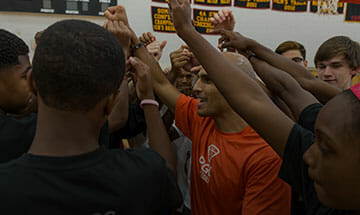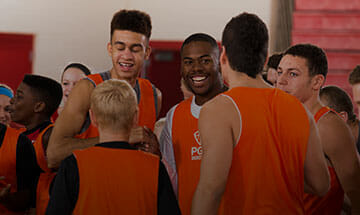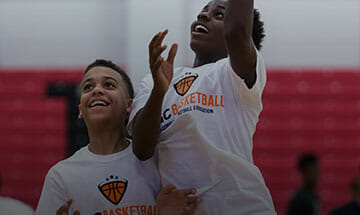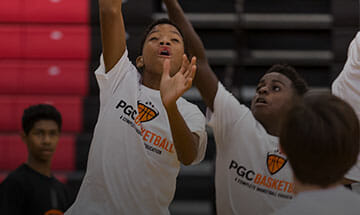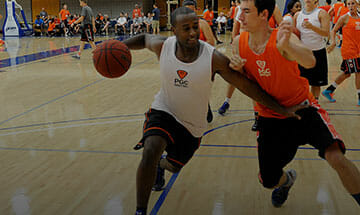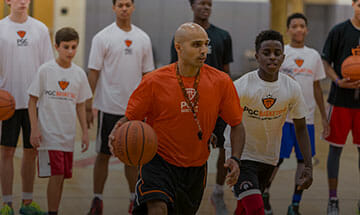The PGC Blog
Brought to you by
What Does Leadership Look Like?
Matt Dyment was a basketball player at Linfield College in McMinnville, Oregon. He is also one of the finest leaders I have ever seen on and off a basketball court. I offer some examples of Matt’s leadership as a yardstick so you can measure your own efforts by comparison.
Fall Head over Heels in Love with Miss Takes
As a young high-school athlete I’d never experienced falling in love, not until I started training with professional athletes in Houston. (Yes, just as the commercial says, the NBA CARES, they really do.) That was where I got to know Miss Takes. Oh, I didn’t love her immediately – I even cursed at her at the beginning of our relationship – I wanted her to go away, but somehow, I could never get rid of her. I began to appreciate her and eventually, I grew to love my Miss Takes.
Mistakes Require Action
In response to an error, Hustle-CAT is a good term to remember and a good thing to do. In all the continuous team sports like basketball, soccer, volleyball, and hockey—and sometimes in baseball and football as well—a player will make a mistake and have the opportunity immediately either to compound the mistake or to correct it. If your error immobilizes you while you pause to demonstrate your anguish or anger, you compound your error.
How Your Index Finger can be hurting your playing time
We, humans, should be most appreciative of our thumbs. They are pretty super little tools and they help us do things that most other species can’t achieve: jump rope, have thumb wars, and let’s not forget maybe the most important – playing Super Mario Kart. (Man, I miss those red turtle shells!)
Great Basketball Players Don’t Make Great Plays
Common sense might seem to tell you that great plays are what make the difference between a good player and a mediocre player. But most coaches would disagree. More often, they would say, great plays—or the attempts to make great plays—are what make good players mediocre.
How to Get the Ball More on Offense
Basketball players shouldn’t be shy about asking for the ball. Read along to discover how to get the ball more often while working with your teammates not against.
Jumping is Not a Valuable Skill on Defense
Fleet means quick-moving, and here it is also a made-up word for “FLoored feEET.” Feet on the floor, on defense. Never leave your feet on defense, not even to block a pass, not even to block a shot. For every pass you block by jumping, two will get by you, and you will be slow getting to a good defensive help-position because you are not FLEET when you are in the air. You have to wait until you come down to move.
How to Achieve Peak Performance
There is a basic human instinct that is as old as ‘fight or flight’. When a person feels threatened or under pressure, our body automatically reacts with basic physiological responses. These automatic reactions can hinder athletic performance, if we let them. It is vital to understand how our body and our mind responds to playing under pressure so we can control those automatic responses and keep them from hindering performance.
